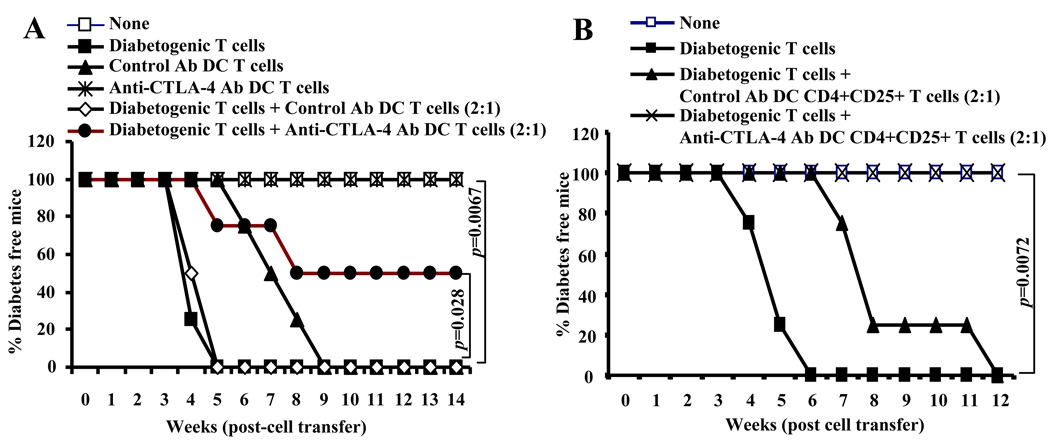FIGURE 7.
T cells from anti-CTLA-4 Ab DC treated mice delay diabetogenic T cell transfer induced hyperglycemia. A) Six week old NOD-Scid mice were left untreated (none) or i.v. injected with purified T cells from hyperglycemic wild-type NOD mice (diabetogenic T cells) (2×106 cells/mouse) and β cell Ag pulsed control or anti-CTLA-4 Ab DC recipient mice (1×106 cells/mouse) separately or in combination. B) In a separate experiment, NOD-Scid mice that received diabetogenic T cells (2×106 cells/mouse) were also injected with purified CD4+CD25+ T cells from β cell Ag pulsed control or anti-CTLA-4- Ab DC treated mice (1×106 cells/mouse). All T cell preparations were stimulated using anti-CD3 Ab (2 µg/ml) and anti-CD28 Ab (0.5 µg/ml) (2×105/well cultured in round bottom pates) for 48 h before injection. Non-recipient and T cell recipient mice were tested for blood glucose levels every week. Mice that showed glucose levels >250 mg/dl for two consecutive bleeds were considered diabetic. Four mice were included in each group. Statistical significance was determined using log-rank test by comparing 1) anti-CTLA-4 Ab-DC T cell recipient group with control Ab-DC T cell recipient (p=0.0067 in panel A); 2) Diabetogenic T cells + Anti-CTLA-4 Ab DC T cell recipient group with diabetogenic T cells + Control Ab DC T cell recipient group (p=0.028 in panel A); 3) diabetogenic T cells + anti-CTLA-4 Ab DC CD4+CD25+ T cell recipient group with Diabetogenic T cells + control Ab DC CD4+CD25+ T cell recipient group (p=0.0072 in panel B).

